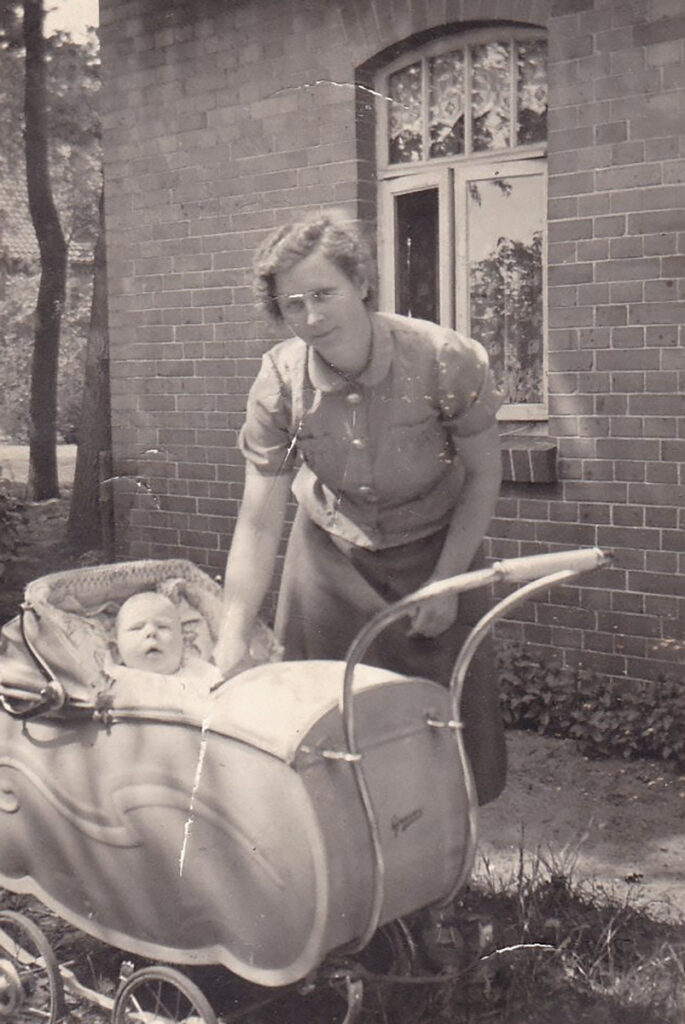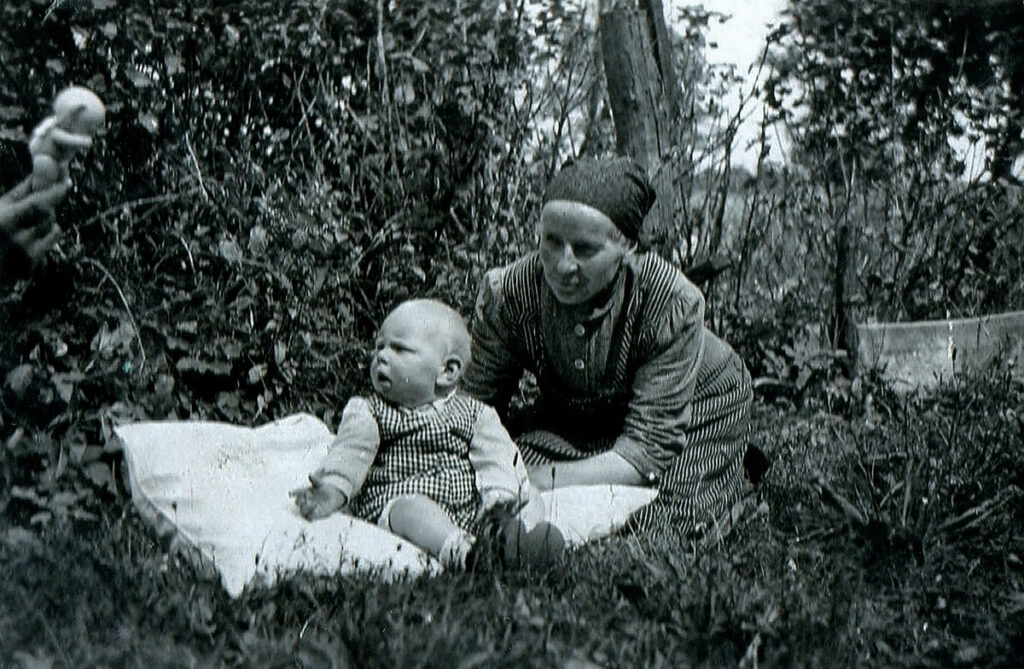
Fritz Wehde in a pram with his aunt Wilma, around 1940.

Fritz with his grandmother and the teddy bear, around 1941.
Privately owned by Uta Wehde.
FRITZ WEHDE (1939 – 1944)
Fritz Wehde was born on 11 November 1939 into a loving and caring environment. He lived with his two younger siblings and his parents in Horst near Hanover. His great-grandfather Heinrich had built the house at the same time and next to the house of his twin brother Ludwig. The »twin houses« still stand today and are inhabited by Fritzchen’s nephews and his cousin.
Fritzchen was the child of Fritz and Else Wehde. As the first-born son, he was given the first name of his grandfather, uncle and father. Fritzchen’s father was a trained bricklayer and later opened a building business in Horst after passing his master craftsman’s examination. The Wehdes felt a political affinity with the SPD, even when it was banned in 1933. They remained »anti-Nazi« even after the Nazis seized power.
The family was close-knit and Fritzchen had a particularly close bond with his Aunt Wilma: »Aunt Wilma is coming to Horst today. As soon as Fritzchen’s mother uttered this sentence, Fritzchen dashed off, ran through the house, across the hallway to the outside, to the garden fence – to his favourite spot, because from there Fritzchen had a view of the whole street. And then Fritzchen waited. Nothing and nobody could persuade Fritzchen to go back into the house«.
There were complications at Fritzchen’s birth. A lack of oxygen led to early childhood brain damage with mental disability. Apart from a few restrictions, Fritzchen had a normal childhood and was lovingly cared for by his family. As he was well integrated into the family and his home town, the health authorities only became aware of him at a late stage. In July 1944, he was reported to the »Reich Committee« by medical officer Meyer and treatment in a »specialised children’s ward« was initiated.
Six weeks later, the boy was taken away against his parents‘ wishes and forcibly committed to the Lüneburg sanatorium and care centre by police order. Fritzchen suffered greatly from the separation from his family, he threw tantrums and self-harmed, destroying the few possessions he had. As he probably also cried and screamed a lot, he was initially sedated with Luminal – »3 + 1 tablets« are noted in his medical history.
From mid-November, Fritzchen’s general condition deteriorated rapidly, probably not only because of the medication but also because of the lack of supplies. Because there was a war on, Fritzchen’s parents were only granted permission to visit him once. They therefore had to enquire about his state of health by letter. The medical director Bräuner answered their enquiries: »Mentally, he hasn’t made any progress so far […] In November, the boy had diarrhoea for a while […] and since then he has had a tendency to have a rectum. […] his strength has deteriorated.«
Two weeks later, Fritzchen Wehde was either murdered by an overdose of Luminal or he starved to death, both of which are possible. His official cause of death was »colon catarrh«. To reassure his parents, Bräuner also claimed that Fritzchen had not developed mentally because the brain damage caused by meningitis was too severe. This information puzzled the family, as Fritzchen had never suffered from meningitis. Therefore, there was an early suspicion that Fritzchen’s death had been tampered with.
Fritzchen’s body was buried in the former institutional cemetery, his grave bearing the grave number 242a. Fritzchen’s family desperately endeavoured to attend the funeral. However, they were not granted a driving licence.